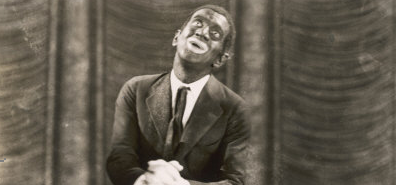Messages in the Mayhem

You’ll log many a mile to find someone more disapproving than I am of the anger and vilification that characterize so much of American political discourse. But to lay the tragic January 8 shooting rampage in Tucson on the doorstep of politicians or pundits is silly, and no less incendiary itself than any firearms metaphor. To be sure, political opponents should not be compared to Nazis or have crosshairs superimposed on their faces. But because such things are ugly and sophomoric, not because they induce violence.
Yes, there have certainly been politically and ideologically motivated murders, but much mayhem has also been visited on public servants by actors impelled not by creed but craziness.
And delusions were clearly the demons prodding Jared Lee Loughner. Teachers and fellow students of the alleged Tucson killer at the community college he briefly attended were sufficiently concerned by his odd behavior, inexplicable bursts of laughter, non sequiturs and bizarre tirades to have raised alarms with the administration, which asked him to leave the school. His philosophy professor said that Loughner’s “brains were scrambled” and that he had never once brought up politics in class. The shrine discovered in Loughner’s backyard, complete with skull and candles, rounded out the picture of a deeply disturbed person, not some earnest observer of current events pushed over the edge by political ads.
But that doesn’t mean that there isn’t societal soul-searching to be done. There was a time, after all, when the disgruntled, disenfranchised and demented chose to express themselves by standing on soapboxes and ranting. Guns, knives and explosives were no less available to them than they were to the angry workers, teenage school-shooters and wild-eyed conspiracy theorists who have spilled so much innocent blood at workplaces, campuses and shopping centers in more recent years. Why have so many citizens, whatever their emotional state, turned these days to murder to make a point? More important: What does the turning say to America?
Any Jew who received a proper Torah education has internalized the subtle but sage concept that, although we are not prophets, we do well to seek in tragic events some message about how we might improve our behavior.
No, it isn’t, as some simpletons assume, precise cause and effect that we seek, but some message, some pointing to where we might stand to improve. Our country would benefit these days from a similar searching of the national soul.
Even if the Tucson shooter is a nutcase, in other words, his horrible act can and should serve as an impetus for politicos, pundits and all Americans to more carefully consider our patterns of speech (and “our,” dear Democrats and Republicans alike, means “our,” not “their”). Political epithets may not yield violence, but incivility still coarsens society.
There may, though, be another introspection-ripe place pointed to by the disregard for human life that has woven its way into American society.
Because a subtle waning of respect for life, particularly at its beginning and end, has been evident in our society over recent years.
Well over one million abortions, for instance, take place each year nationwide. It was recently reported that fully 41% of all pregnancies in New York City this year were “terminated.”
American ethicists have made pronouncements about what constitutes “quality of life,” advising medical personnel when further care of patients is “futile.” “Brain stem death,” where activity in higher parts of a brain might still be present, has become an enthusiastically embraced criterion for the removal of vital organs.
Princeton Bioethics Professor Peter Singer considers “the life of a newborn” to be “of less value than the life of a pig” and advocates for the euthanasia of severely disabled infants.
Asked by The New York Times in 2005 what value he thinks may disappear in the next 35 years, he responded: “the traditional view of the sanctity of human life.”
People like Jared Lee Loughner may already be ahead of that treacherous curve.
And America needs to begin blocking the road.
© 2011 AMI MAGAZINE
[Rabbi Shafran is an editor at large and columnist for Ami]
The above essay may be reproduced or republished, with the above copyright appended.
Communications: [email protected]



Recent Comments